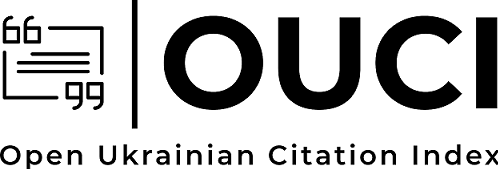Literary Studio “Brama”: Personalities
DOI:
https://doi.org/10.28925/2524-0757.2025.116Keywords:
literary studio “Brama”, sixtiers, samvydav, Liubov Panchenko, Viktor Mohylnyi, Oles Shevchenko, Hryhorii Tymenko, Yurii MurashovAbstract
The article shows the history of the life and activities of the organisers and members of the literary studio «Brama», which was founded in Kyiv in 1963 and was created to unite creative youth who did not accept Soviet rule and ideology, around the problems of creative development, preservation of national culture and opposition to the ruling regime. The biographies of the poets of the sixties such as Viktor Mohylnyi, Hryhorii Tymenko, Vasyl Solovia, artist and fashion designer Liubov Panchenko, public and political figure Oles Shevchenko, dissident and teacher Yurii Murashov and others are considered. The study should fill the gap in studies of the history of the Ukrainian dissident movement and cultural organizations, which exists due to the absence in modern Ukrainian historical science of separate works devoted to the history of the studio “Brama” and biographies of personalities who were its members. The life story of the members of the literary studio “Brama” is a direct reflection of the entire spectrum of problems and life circumstances that the Ukrainian creative intelligentsia and opposition to the Soviet totalitarian regime faced. The biographies of the individuals who made up the personal group of the studio “Brama” indicate a high level of their involvement in the socio-political and national-cultural life of Ukraine of their time, their significant contribution to the development of culture, the preservation of national identity and the fight against communist-Russian colonial rule. Thus, the biographies of the members of the studio “Brama” can be exemplary in considering the history of the dissident movement in Ukraine and the development of cultural and national life during the Soviet occupation in the second half of the twentieth century.
Downloads
References
Bieliaiev, O. (2023). Viktor Mohylnyi – poet-shistdesiatnyk z Chokolivky. Abstracts of Papers’23: Kyiv i kyiany (pp. 115–121). Kyiv [in Ukrainian].
Dziuba, I. (2006). Apokalipsys Hryhoriia Tymenka. In I. Dziuba. U literaturi i navkolo: Z borhiv davnikh i novonabuvanykh (pp. 166–183). Kyiv [in Ukrainian].
Dziubenko, V. (2019). Attyla Mohylnyi: kyivskyi trubadur. [in Ukrainian]. https://plomin.club/attila-mogilny/
Kaplun, V. (n. d.). Shevchenko Oles Yevhenovych. [in Ukrainian]. https://museum.khpg.org/1184522126
Kyriian, N. (n. d.). Spovid sorokanizhky. [in Ukrainian]. https://museum.khpg.org/en/1467105487
Krupnyk, L. (2023). Mavka z Lisovoi Buchi. Pro doliu y tvorchist khudozhnytsi Liubovi Panchenko. Ukrainskyi tyzhden [in Ukrainian]. https://tyzhden.ua/mavka-z-lisovoi-buchi-pro-doliu-j-tvorchist-khudozhnytsi-liubovi-panchenko/
Lodzynska, O., & Pochveruk, H. (n. d.). Panchenko Liubov Mykhailivna. [in Ukrainian]. https://esu.com.ua/article-883163
Lodzynska, O. (2021). Svit, vidkrytyi nam Liuboviu. In O. Lodzynska, L. Krupnyk (Comps.). Liubov Panchenko: povernennia (pp. 24–26). Kyiv [in Ukrainian].
Ovsiienko, V. (n. d.). Mohylnyi Viktor Mykolovych. [in Ukrainian]. https://esu.com.ua/article-68236
Ovsiienko, V. (2014). Neznane shistdesiatnytstvo. Ukraina moloda [in Ukrainian]. https://www.umoloda.kiev.ua/number/2572/163/90745
Ovsiienko, V. (n. d.). Mohylnyi Viktor Mykolovych. Tvorchyi vechir Viktora Mohylnoho. [in Ukrainian]. https://museum.khpg.org/1298450070
Ovsiienko, V. (n. d.). Murashov Yurii Ihorovych. [in Ukrainian]. https://esu.com.ua/article-70070
Ovsiienko, V. (n. d.). Shevchenko Oles Yevhenovych. [in Ukrainian]. https://museum.khpg.org/1184522126
Plakhotniuk, M. (2012). Kolovorot. Statti, spohady, dokumenty. Kyiv [in Ukrainian].
Published
How to Cite
Issue
Section
License
Copyright (c) 2025 Олександр Бєляєв

This work is licensed under a Creative Commons Attribution-NonCommercial-ShareAlike 4.0 International License.
Authors who publish in this journal retain the right of authorship of the work and give to the journal right of first publication of this work under the conditions of Creative Commons: Attribution-NonCommercial-ShareAlike 4.0 International (CC BY-NC-SA 4.0), which allows others freely distribute the work published with reference to the authors of the original work and the first publication of this magazine.














